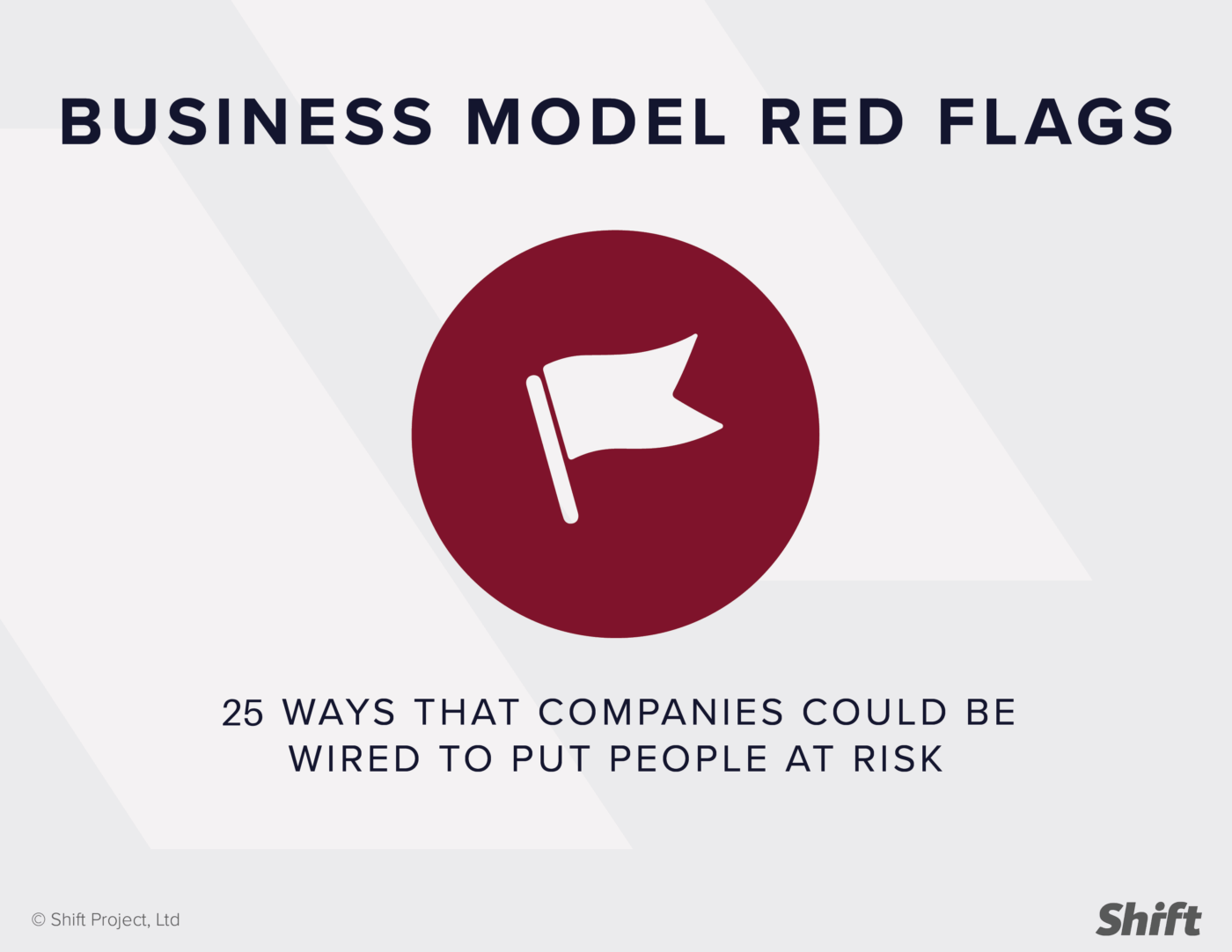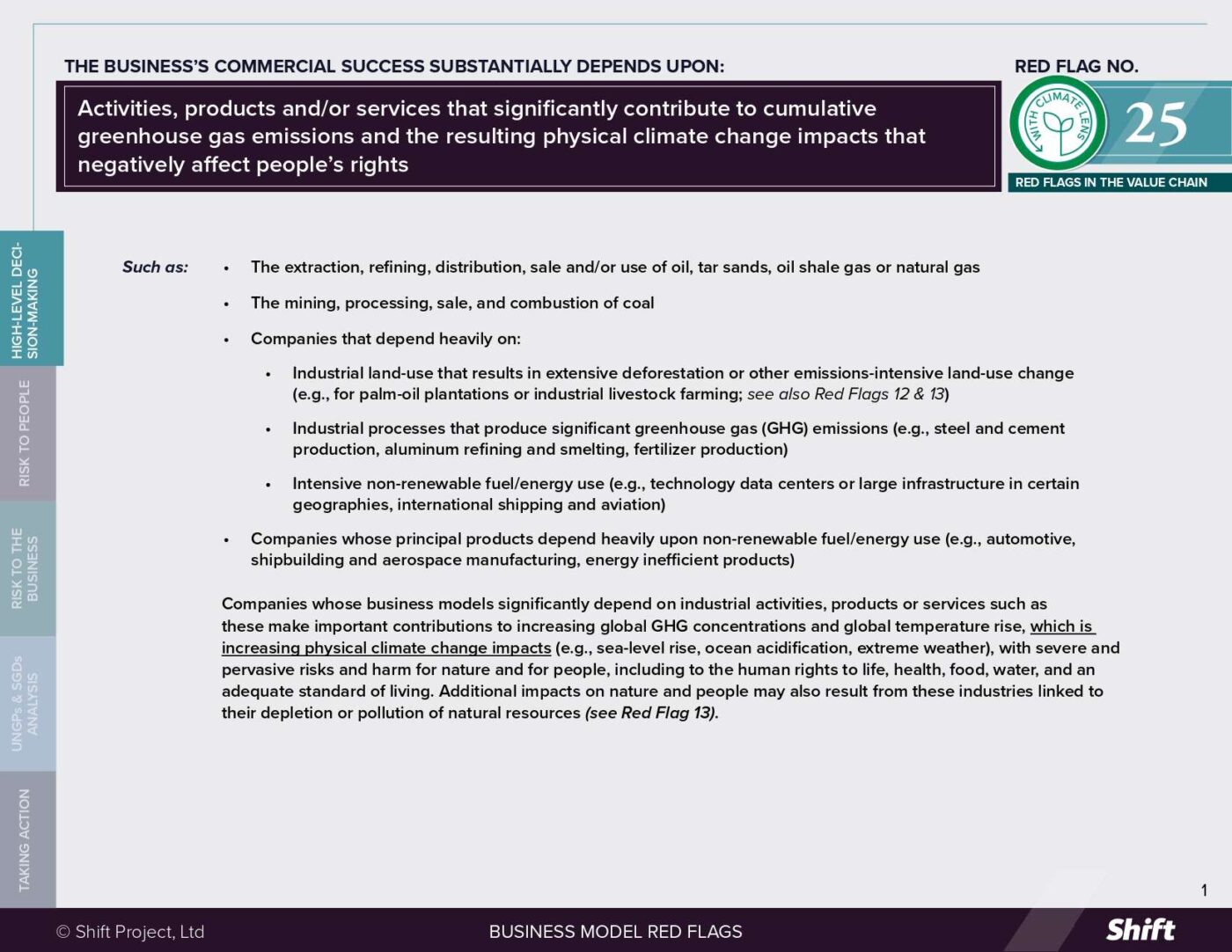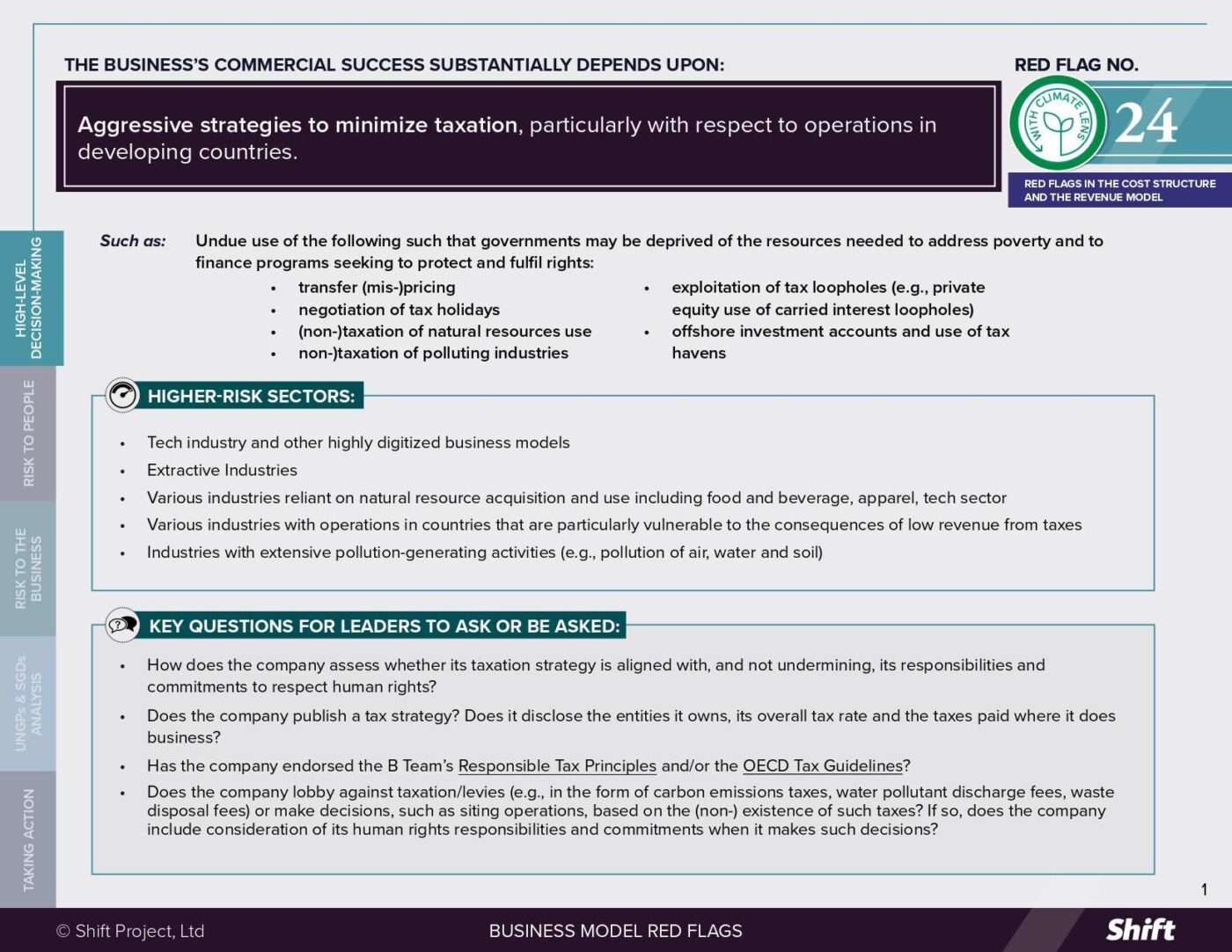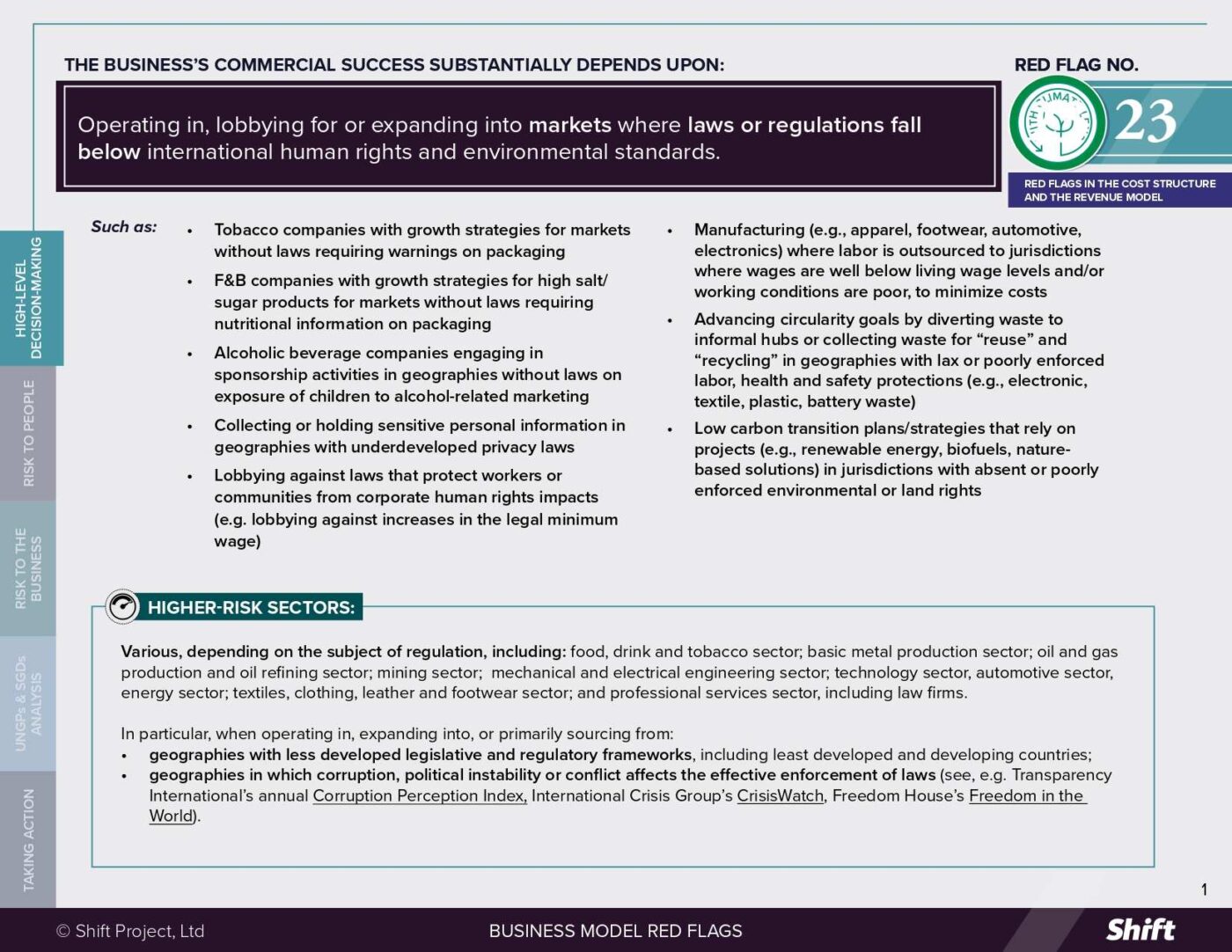Stakeholder engagement is essential to a business’s efforts to respect human rights – and it needs to be meaningful if it’s going to fulfill that role. While there is substantial guidance about how to conduct stakeholder engagement more effectively, many companies still face significant challenges in getting engagement “right.” Poor engagement can increase the risks of negative human rights impacts on stakeholders; failing to address stakeholder concerns early and effectively can mean that they escalate into more serious impacts. On the other hand, meaningful stakeholder engagement can bring benefits to company and stakeholders alike because it can lead to more informed actions and decisions that help prevent human rights impacts from occurring or find more creative ways to try to address them.
Learn more: see all our resource library listings below, as well as specific sections from these comprehensive resources:
- Guiding Principles 16, 18 and 20 and their commentary
- UNGP Reporting Framework questions C2, C2.1, C2.2, C2.3 and their implementation guidance
- The Corporate Responsibility to Respect Human Rights: An Interpretive Guide: p.33
- Doing Business With Respect for Human Rights: Chapter 3.7
- How to Do Business With Respect for Children’s Right to Be Free From Child Labour: p.54
- Guidance for Companies on Respecting the Human Rights to Water and Sanitation: p.27
- European Commission Sector Guides on Implementing the Guiding Principles: employment agencies: p.40, 60; ICT: p.37, 61; oil and gas: p.34, 58



